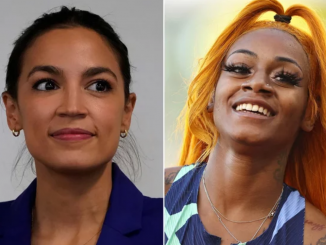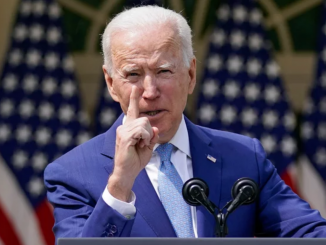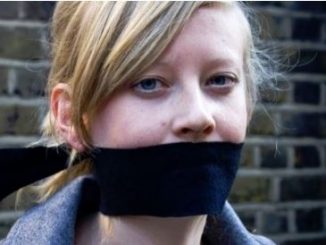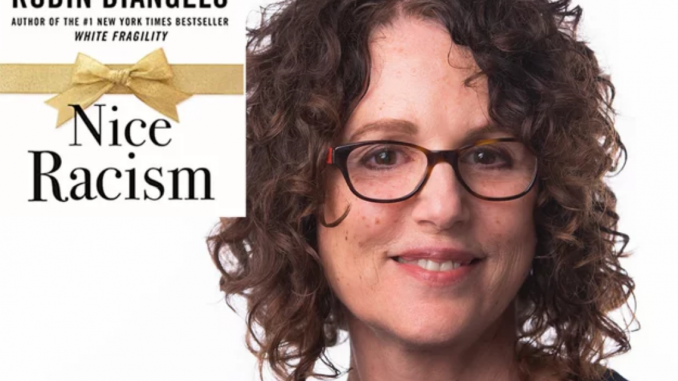
Doubling down on her dangerous claim that all white people are intractably, hopelessly racist, the P.T. Barnum of American race relations is back with a new book – a little light summer reading, if you will – and her premise is a whopper.
The worst of the worst, says Robin DiAngelo, are not those who identify as neo-Nazis or white supremacists or members of the KKK or the Aryan Brotherhood.
No: In her new book, “Nice Racism: How Progressive White People Perpetuate Racial Harm,” DiAngelo posits that white, liberal, intellectual, coastal progressives – you know, the people who used her first book, “White Fragility,” as an intellectual hairshirt – are the most bigoted, the most harmful, the greatest threat to racial equality.
As a professor of “multicultural education,” DiAngelo is credited with coining the phrase “white fragility” in 2011. Of late she’s developed this into a lucrative career – along with Ibram X. Kendi of “How to Be an Antiracist” and others – teaching white people why they’re racist. Oh, DiAngelo is white.
CEOs of multibillion-dollar multinationals force their rank-and-file to sit through her corporate scoldings ($15,000 a pop as of last summer).
Never mind that DiAngelo cannot explain how she, more than any other white progressive, has been tapped by the cosmos with the sole ability to comprehend the conundrum of white racists who don’t exhibit racism and yet are racists nonetheless, now and forevermore.
Which, by extension, also makes DiAngelo a racist – just, I don’t know, a more enlightened one? If there is such a thing?
Consider this vignette from her new book: One can practically picture DiAngelo proudly carrying her worn tote bag, no doubt emblazoned with some pat liberal bromide, bouncing down the street in her Birkenstocks and no make-up, radiating self-satisfaction while having this epiphany specific to a certain kind of well-off, right-thinking white lady:”Perhaps on my way to Whole Foods, I must pass” – must, because white people have made this unavoidable – “an indigenous man who appears to be lying on the sidewalk.”
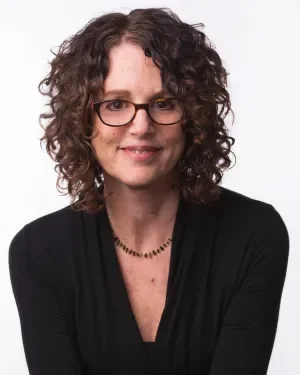
Also, note the use of “appears.” Perhaps he just needed a nap?
In any event, in said moment, DiAngelo writes, “my whiteness feels suddenly very ‘loud,’ and I ‘know’ that he knows I am an imposter and a hypocrite, that my privilege . . . [is] dependent on his oppression.”
If she really thinks this, she could, I don’t know, take some of the millions she’s made off “White Fragility” – a significant percentage of which she speciously claimed to donate to racial justice groups, before a Washington Free Beacon report led her to amend that assertion on her website – and donate that to the cause. Or at least put a few dollars in this resting man’s pocket.
But practical applications, in DiAngelo’s ever-profitable “lived experience,” are, it seems, for suckers. Marinate in your white guilt and fragility, she says, and merely exist in the suspended animation that is structural racism while you search, with futility, for answers in her books.
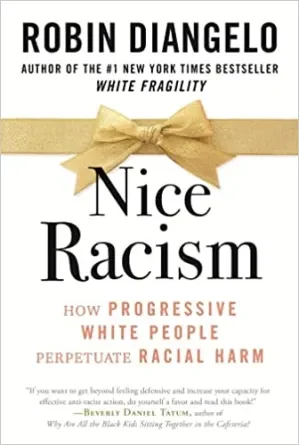
Lest there be any doubt that “Nice Racism” is a money grab – “White Fragility” was published by a small press in 2018, but didn’t take off until Black Lives Matter galvanized in 2020 – consider DiAngelo’s rationale for her sequel:
“I do not set out to establish that systemic racism and white supremacy exist as I did in that book . . . In ‘White Fragility,’ I made a claim that white progressives cause the most daily harm to black, indigenous and other racialized people. Here I will explain some of the specific ways we do so.”
Her entire premise boils down to this: The onus is solely on white America to bring about structural and economic change – except white America can’t, because as whites, we can never change for intrinsic, unfixable, immutable reasons.
The only prescription DiAngelo offers? Keep buying her books, which render black Americans as forever oppressed, impotent, and downright foolish to think any achievements – from Jackie Robinson breaking baseball’s color barrier to Muhammad Ali lighting the Olympic torch to the election of Barack Obama – are due to their fight, their struggle, their talents, intellect, and ability to engender admiration from all Americans.
Businesses, book clubs and college campuses are falling for this bunk, but commentators on the left and right thankfully are starting to see through the grift.Writing in the Atlantic last year, John McWhorter, the esteemed black linguist, author and Columbia professor, said that with “White Fragility,” DiAngelo “openly infantilized black people” and “simply dehumanized us.”
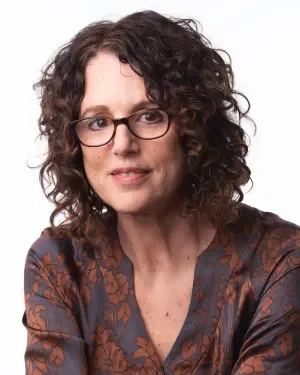
On NPR, McWhorter called it an “Orwellian indoctrination program” that “is racist . . . If you write a book that teaches that black people’s feelings must be stepped around to an exquisitely sensitive degree that hasn’t been required of any other human beings, you’re condescending to black people. In supposing that black people have no resilience, you are saying that black people are unusually weak. You’re saying that we are lesser . . . that’s discriminatory.”
Yes.
In the Washington Post, Carlos Lozada called “White Fragility” “oversimplified,” “self-serving,” and offering only “circular logic . . . nothing ever changes, because change would violate its premise.”
Medium: “A destructive book full of bad reasoning.”
Jonathan Chait (!) in New York magazine: “Kooky, harmful,” and espousing “outright racist ideas.”
The past year has been one of great tumult. This summer, in so many ways, promises better things. Cynics and hucksters like Robin DiAngelo need us to reject our native American optimism, to deny the collective sense of justice that led white and black Americans to march for George Floyd at the height of the pandemic, in order to simply make a buck, no matter the greater cost.
Don’t fall for it.
*story by The New York Post
